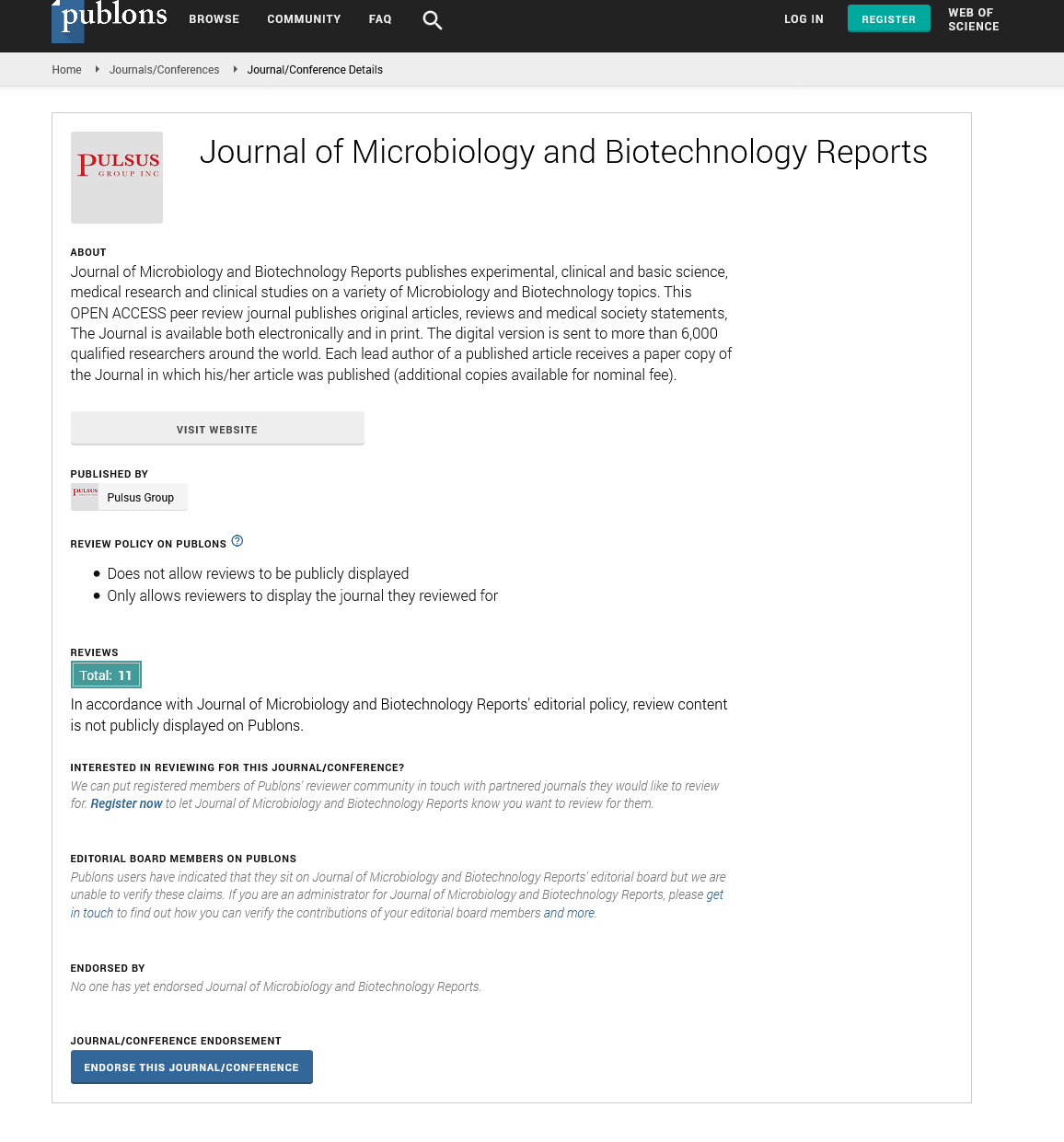
Sign up for email alert when new content gets added: Sign up
Abstract
Investigation of antimicrobial peptide activity against amastigote forms of Leishmania major
Author(s): Mojtaba Esmailpour Roshan*Zoonotic cutaneous leishmaniasis caused by Leishmania major is the most common type of disease in Iran. Conventional anticoagulants have been used in the treatment of cutaneous leishmaniasis for a long time, but drug resistance and some serious side effects have been reported. Therefore, the discovery and development of new therapeutic candidates is needed. Peptide CM11 is one of these peptides whose antibacterial activity has been proven. This peptide is a short cecropin-melittin hybrid peptide obtained through a hybrid sequencing method. The aim of this study is to evaluate the anti-leishmanial activity of CM11 platelets against amastigote forms of Leishmania major. In this research, amastigote forms of Iranian Garlic L. major (MRHO/IR /75/ER) were cultured in the presence of different molar concentrations of methylantimony (glucanthium) to find the most suitable concentration of glucanthium in comparison with L. major amastigotes, then the anti-leishmania activity Different concentrations of CM11 peptide (8 μM, 16 μM, 32 μM and 64 μM) for 24 hours, 48 hours and 72 hours were examined by DAPI staining. In addition, MTT was used to determine the cytotoxic effects of CM11 peptide on mouse fibroblast cells. The results showed that CM11 peptide has an antimicrobial effect against the Iranian isolate of L. major in laboratory conditions. CM11 peptide seems to have significant potential as a new anti-leishmanial agent
Full-Text | PDF




